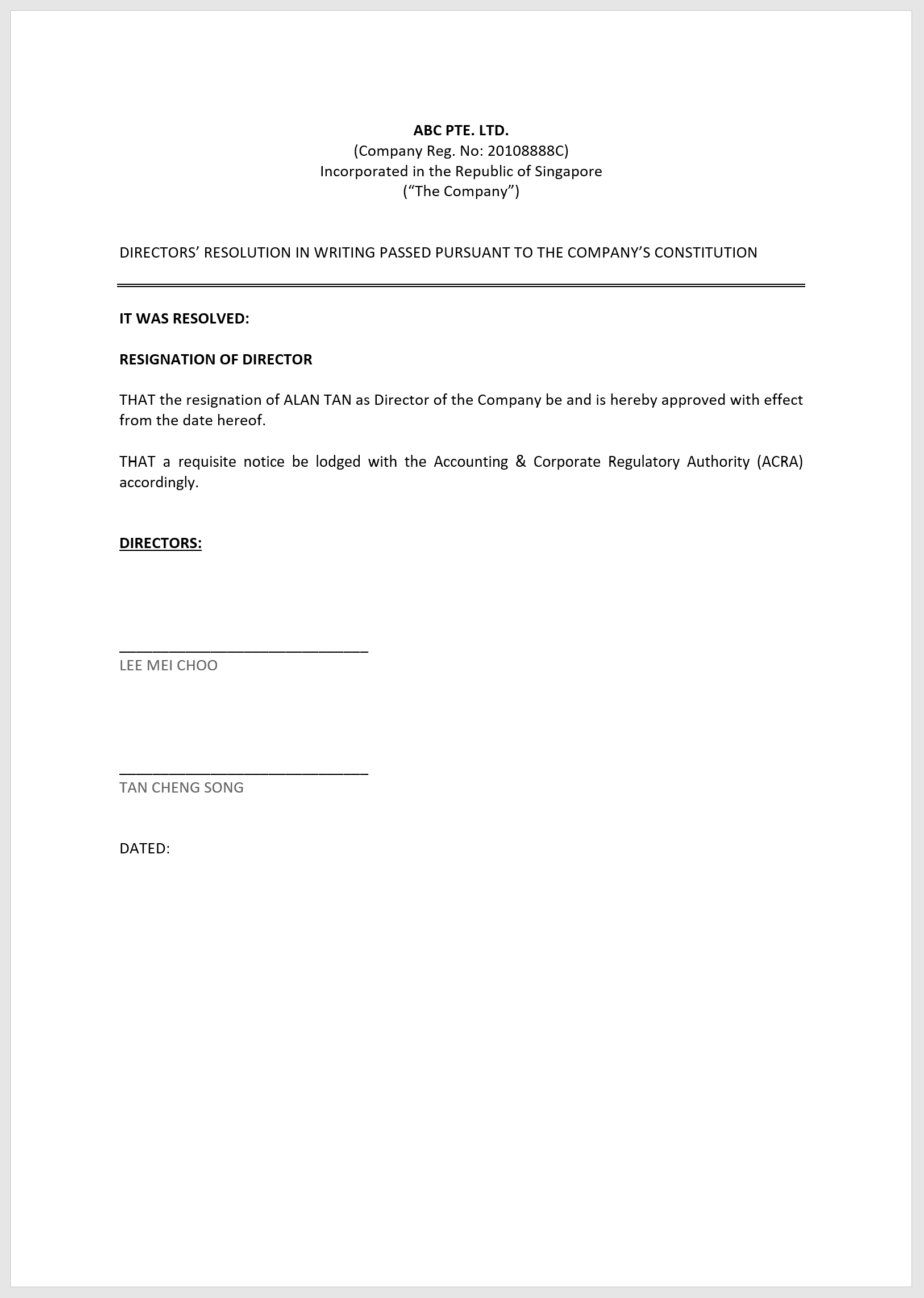|
|
Formal Board Meetings of Directors or Formal General Meetings of Members
A ‘resolution’ is a decision or an expression of opinion or intention that is presented and resolved at formal general meetings of Members and formal board meetings of Directors. A resolution can also be the proposal submitted to convene such a meeting. A resolution can, however, be passed without any actual meeting of Members and Directors as the case may be, if the Constitution of the Company provides for:
Resolutions that have been recorded in the minute book are often referred to as ‘minutes’. and to be entered in books kept for that purpose within one month of the date upon which the relevant meeting was held.
Resolution in Writing
It is quite common for the Constitution of the Company to provide for Directors' Resolutions to be passed without a physical meeting being held, such as:
“A resolution in writing, signed by all the Directors for time being entitled to receive notice of meeting of directors, is a valid and effectual as it had been passed at a meeting of the directors duly convened and held. . In addition to hard copies, resolutions in writing can be passed via electronic channels such as email.”
We include below a sample format of a resolution in writing for Resignation of Director (fictitious names are used for illustrative purpose):

Directors' Resolutions
Depending on the Company’s Constitution, Directors’ Resolutions either require a simple majority of votes to secure the adoption, or approval by all of the Directors.
Members' Resolutions
There are two types of Members’ Resolutions:
Ordinary Resolution
An Ordinary Resolution is applicable for the transaction of all kinds of business except for specific
business transactions that the Companies Act or the Constitution requires a special
resolution/resolution with special majority. An Ordinary Resolution can be passed by a simple majority
of Members voting on a show of hands or by poll. The “majority” referred to is the majority
of those voting – not the majority of Members (and/or proxies) attending the meeting, as attendees
can elect to abstain from voting.
The following resolutions must be passed by a special majority of not less than three quarters of such Members of the company/proxies entitled to vote:
Special Resolution
A Special Resolution is a resolution that must be passed by a majority of not less than three-quarters of such members entitled to vote either in person or where proxies are allowed, by proxy at a general meeting. (The majority is derived from the total of people who vote - those who choose to attend the meeting but do not vote on the resolution are not counted.) The resolution will only be effective if not less than 14 days is given to the Members (in the case of a Private Company), specifying the intention to propose the resolution as a special resolution. The business transactions listed below require a Special Resolution:
Resolutions of one member companies
A company that has only one member may pass a resolution by the member recording the resolution and signing the record.
Resolutions Requiring Special Notice
The Companies Act requires that special notice must be given to convene a meeting for the following resolutions:
The resolution shall not be effective unless notice of the intention to pass the resolution has been given to
the Company not less than 28 days before the date of the meeting, and the Company shall give its members notice
of the resolution and meeting at the same time (or not less than 14 days if the Constitution permits).
Annual General Meeting (AGM) & Annual Return of the Companies
Every company must hold a general meeting in each calendar year as its annual general meeting. The AGM may be held within 6 months from the end of each financial year end and must lodge the return within 7 months after the end of each financial year.
Extraordinary General Meeting (EGM)
An EGM may be convened at any time for the transaction of special business which requires resolution/action before the next AGM. The business transacted at an EGM is conducted, and restricted, according to the agenda as set out in the notice convening the meeting.
The Directors of a company are the convening authority for an EGM, however Members holding not less than 10% of the paid-up capital, who carry voting rights, may at any time lodge a requisition requiring the directors to convene an EGM for the purposes stated in the requisition.
Notice of General Meetings
The company sends the notice of meetings to all the members, shareholders and officers of the company. The key requirements of the contents and timeline for a notice of a general meeting are as follows:
The notice should be sent :
|
Highlights on Corporate Secretarial...
|